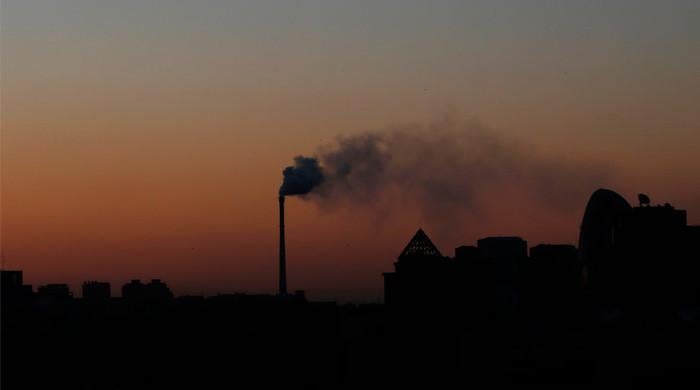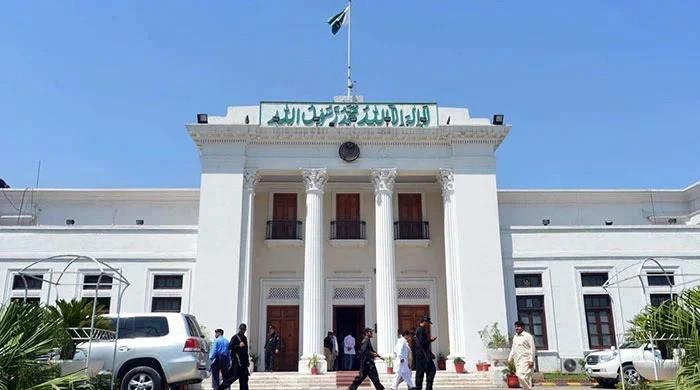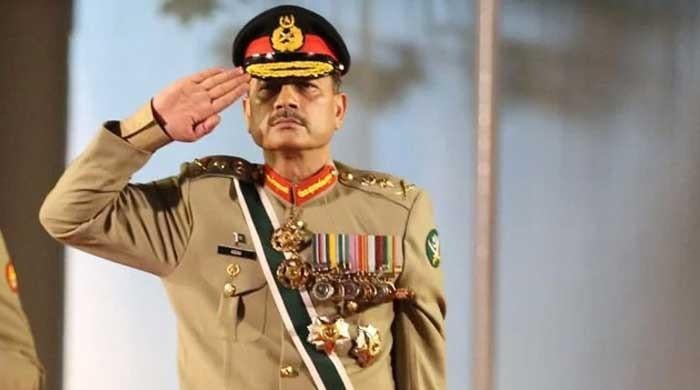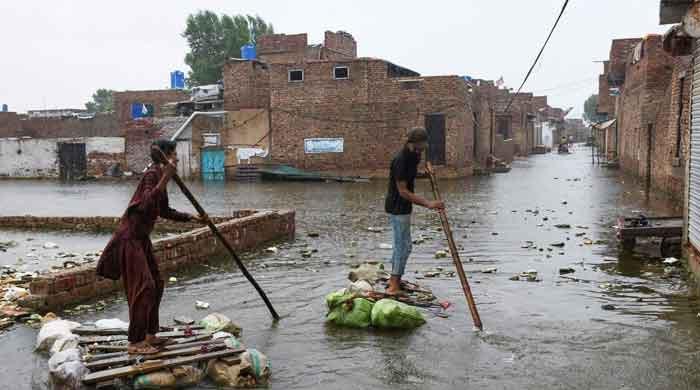United we press, divided we sell
Pakistan is a country where "freedom of the press" is always considered a "threat" by rulers whether military or civilian
May 03, 2023
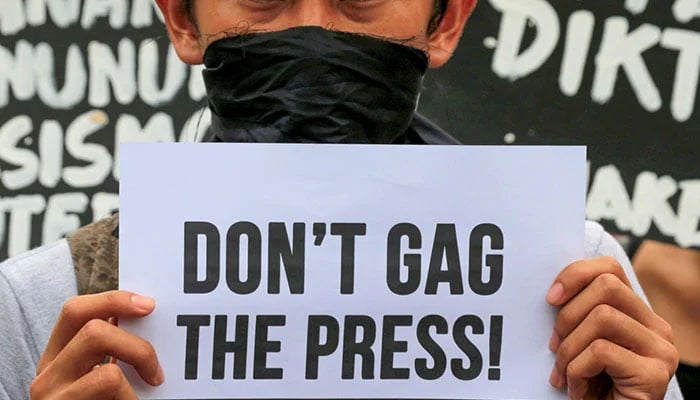
Founder of the journalists’ movement in Pakistan, the late MA Shakoor, who along with a few others established the Sindh Union of Journalists (SUJ) and subsequently the Pakistan Federal Union of Journalists (PFUJ), once revealed how he got the idea of forming a journalist union in 1950. It showed why the unity of journalists is so important for the struggle like “freedom of the press, freedom of expression” and people’s right to know —something which has faded out with the passage of time and allowed "forces of darkness" to create disunity among journalist fraternity as these elements have always been scared of intellectual and progressive growth in Pakistan.
Later, led by veterans like Minhaj Barna and Nisar Usmani, the journalists fought gallant battles against military dictators and authoritarian regimes.
Journalists' unity has never been as important as today. The PFUJ has dedicated the "World Press Freedom Day", to journalist/anchor Arshad Sharif, who was ruthlessly murdered last year after he was almost forced to leave Pakistan. For journalists in Pakistan, it’s not merely May 3rd that is important but also May 13th, the day when three journalists —Nasir Zaidi, Iqbal Jaffery and Khawar Naeem Hashmi — were flogged in Kot Lakhpat jail, Lahore, during military dictatorship for the cause of freedom of the press in 1978.
MA Shakoor, who himself suffered in prison and went into exile during General Ayub Khan’s era and later joined the teaching profession in London said, “It was during my visit to Vietnam on a journalistic assignment in January 1950, I was fascinated to see a beautiful miniature pagoda built on a single granite pillar in the middle of a small pond. [It stood] in [the pond] up to this day [despite] the ravages of Japanese invasion and French colonial war as well as the American terror bombing. On my return to Karachi, I showed [everyone] the picture of the pagoda supported on a single granite pillar and told them that to me this picture symbolised the position of the KUJ (then SUJ) — vis-à-vis the PFUJ which in 1950 was laboriously being built up.”
To have survived for 72 years, as a frontline champion of the "freedom of the press" and for the rights of the working journalists and media workers in a country like Pakistan is in itself an achievement as the journalists are faced with the daunting task of a struggle against the unprecedented challenges like attacks on media workers, media houses, killings of their colleagues without getting justice, suppression through media laws including those of colonial era on top of the division in their own rank and file.
Pakistan is a country where "freedom of the press" is always considered a "threat" by successive rulers whether military or civilian. Even Article 19, of the Constitution has been framed in such a manner that while guaranteeing "freedom of the press" it imposes massive "unreasonable restrictions" in the name of "reasonable restrictions". Secondly, to keep the press under check the ruling elite used the "carrot and stick" policy to buy or crush the media and in the process the media lost its direction.
The profession of journalism has become a business and is now being called an "Industry". But can a "profession" like journalism or mass communication turn into an "Industry" and if so then how can it defend "freedom of the press?" The basic responsibility of the press is to tell every perfect government that it’s not perfect. Now, that the media has turned into a business or "Industry" and journalists its workforce, it’s become hard to challenge the government and its misdeeds as it not only gives the media industry ads but provides other benefits as well. No wonder the struggle for freedom of the press weakened. The journalists who died or were killed in the line of duty hardly got justice and their families were rarely taken care of. Industries or businesses more often than not give preference to profit which is quite contrary to the noble profession of "journalism".
No wonder professional editors are now regarded as a vanishing breed — which has harmed professionalism and the struggle for freedom of the press in the country. Today, journalism is regarded both as a profession and a business with much importance attached to the business side now and in a way we sell one kind of our product through ads and the other through news. Thus, the moral vacuum expanded and damaged the unity among the journalists and unions as well.
The longest-serving editor of DAWN newspaper, the late Ahmad Ali Khan, who was also among the founders of PFUJ once discussed this issue differently. He once said, “Our experience in South Asia tells us that journalism as a profession came before journalism as a business. Yet, today, we are all well aware, the profession of journalism cannot carry out its function of serving the public cause with freedom unless it rests on its viability as a business enterprise. An impecunious news organisation can be easily intimidated or it can succumb to the temptation to sell itself to the highest bidder.”
Therefore, it was important for the journalists to have one unit and when PFUJ was formed in 1950 and it laid down its "code of conduct" as part of the constitution it termed "acceptance of bribe as the worst crime". The successive rulers used government ads as the most potent means of ‘buying’ the media houses and that is why PFUJ’s principled position from day one has been that an Independent Board should be empowered to decide about ads, circulation of newspapers, and the ABC.
The 11-year rule of General Zia ul Haq is considered the darkest for journalism because he divided Pakistan's politics and the journalists in a bid to prolong its rule. He also massively used the policy of "carrot and stick". Carrot for those who toed his policy and "mission" and stick for those who challenged it.
Thus, the first major division within PFUJ emerged when journalists' struggles were at their peak and they were flogged, faced military courts, and sentenced. In the years to come it further divided not only into fractions and factions but also dozens of associations were formed. governments used their "Information Departments" and ministry to bribe as visible from the fact that till 2012, the ministry had its "secret fund", which was finally abolished by the Supreme Court in the Hamid Mir and others versus Federation of Pakistan case.
In the post-General Pervez Musharraf period, four different information bills and laws were passed, including PEMRA and freedom of information. However, it was also under his nose that journalists and TV channels were banned. In post-TV channels, politically driven journalism led to the division of media houses and journalists as political tools of one party or the other.
In the post-digital media era, it is important to debate and discuss this medium which is by far the strongest platform for "freedom of expression" but the challenge is there is no "editorial control" which results in massive "disinformation" and fake news which would not be easy to counter. Thus, when disinformation becomes the only information it is not only dangerous for the profession but for the society as well.
Only through professionalism and unity in the rank and file of the journalists in Pakistan can fight for their rights and the rights of media workers as well as for the freedom of the press, freedom of expression and people’s right to know. A million-dollar question is … will they ever unite at one platform adhering to those golden principles for which organisations like PFUJ were formed in 1950?
As the unity of the journalists and their many unions is the need of the hour, it is the responsibility of the state and judiciary to ensure justice for Arshad Sharif and all those journalists who were brutally silenced in the line of duty — the tally is not 121.
The writer is an analyst and columnist for GEO, Jang and The News
Twitter: @MazharAbbasGEO




